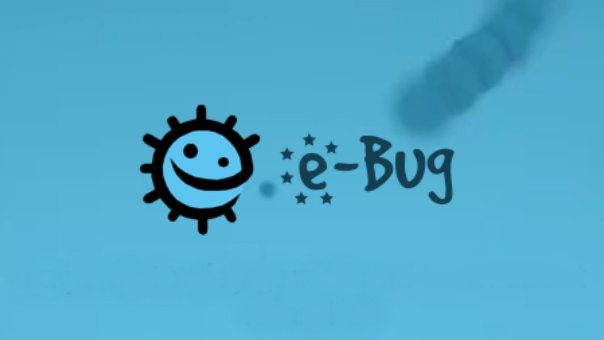e-Bug: educating children and young people on hygiene, infection and antibiotics
08 Aug 2016
Written by Dr Vicki Young
Vicki is project manager for e-Bug at Public Health England.
In the fight against antibiotic resistant bacteria, education of the public is one of the key areas for future action outlined in the UK Department of Health 5-Year Antimicrobial Resistance Strategy 2013-2018. Public Health England leads on the e-Bug project, an educational resource for children and young people which covers the topics of hygiene, the spread of infections, vaccinations and antibiotics.
What is e-Bug?
The aim of e-Bug is to use fun activities to increase young people’s understanding of the importance of using antibiotics correctly to control antibiotic resistance, and to have good hand and respiratory hygiene to help reduce the spread of infection.
The e-Bug materials cover all ages from 4-18 and are completely free for educators and students. Resources include teaching materials on a range of topics, including: an introduction to microbes, hand hygiene, respiratory hygiene, food hygiene, sexual health, vaccinations and antibiotics. Classroom materials include lesson plans, worksheets and activities. All lesson plans have been developed alongside teachers and are in line with the National Curriculum. A student website with online games, quizzes and revision guides allows students to continue their learning at home.
The development of e-Bug
e-Bug was developed in 2006, part funded by the EU Commission, with 18 partner countries involved in its development. The national curriculum in each partner country was studied and found to cover the topic of human health and hygiene, but limited information was provided on antibiotics, antibiotic use and antibiotic resistance. This led to the development of e-Bug.
Now in its 10th year, e-Bug continues to expand both its bank of materials and its reach. e-Bug is now implemented in 26 countries across the world by partners who translate and promote the materials in their countries. The resources are available in 22 different languages including most European languages, Turkish and Arabic. During the academic year between September 2015 and August 2016, the whole e-Bug platform received upwards of 774,000 page views from 96,900+ users.
The e-Bug resources are evidence based and an evaluation in 2010 found that the junior and senior teaching packs were able to significantly improve students’ knowledge, and that this knowledge was retained 6 weeks later. e-Bug has also been recognised by the National Institute for Health and Care Excellence (NICE), and NICE guidance set to be launched early in 2017 will recommend that schools use e-Bug resources to teach about health and hygiene topics in an age-appropriate manner.

Young adult materials
In 2014, materials for young adults aged 15-18 were launched covering the topics of antibiotics and vaccinations. These materials include lesson plans, debate kits and peer education activities. Peer education has been shown to be an effective tool for health education and is widely used in the delivery of sexual health, HIV and smoking prevention lessons. Through the e-Bug peer education activities, not only do students benefit from learning from their peers, but those acting as peer educators have the opportunity to develop a range of skills such as confidence, communication and self-esteem.
Online games
In May 2016, the e-Bug student website was re-launched in HTML5 with updated content and new online games. These games include ‘Stop the Spread’, where users have to stop the spread of microbes in a school playground by catching sneezes in a tissue. In the ‘Doctor Doctor’ game, users treat patients with either rest and fluid or antibiotics, depending on their type of infection.
Students using the website are rewarded with e-Bug bots, characters which can be unlocked by collecting coins found throughout the website and within the games. The more students browse the website and play the games, the more bots they can collect!
Go to www.e-bug.eu and check out all the free resources for teachers and students
Twitter: @ebug_uk
